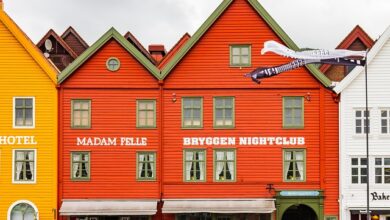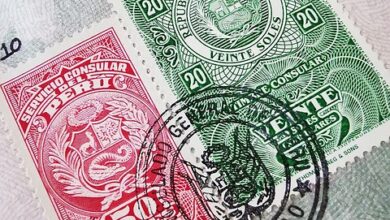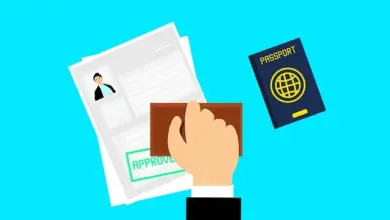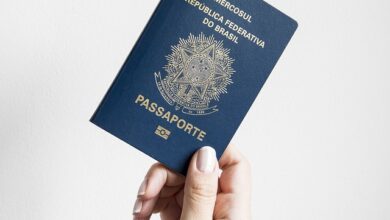Family Reunification Visa in Belgium: A Comprehensive Guide

Belgium offers a family reunification visa for non-EU nationals who wish to join their family members residing legally in the country. This visa allows spouses, children, and sometimes other dependent relatives to live together in Belgium. If you’re planning to apply for a family reunification visa, it’s essential to understand the eligibility criteria, required documents, application process, and associated costs. Here’s everything you need to know:
1. Who Can Apply for Family Reunification?
Family reunification is typically available for the following categories of family members:
- Spouse or Registered Partner: You can apply if you are married to or in a registered partnership with a person legally residing in Belgium.
- Children Under 18: Unmarried minor children of the sponsor (the person already residing in Belgium) are eligible.
- Dependent Relatives: In exceptional cases, dependent parents or other relatives may qualify, but this requires special approval.
The sponsor must hold a valid residence permit and meet certain conditions, such as stable income and adequate housing.
2. Eligibility Criteria
To be eligible for a family reunification visa, both the sponsor and the applicant must meet specific requirements:
For the Sponsor (Residing in Belgium):
- Must have a valid residence permit (e.g., work permit, student visa, or long-term residency).
- Must demonstrate sufficient financial means to support the family member(s). This usually means earning at least 120% of Belgium’s minimum wage (approximately €1,600–€2,000 per month, depending on household size).
- Must provide proof of adequate housing that meets Belgian standards (e.g., sufficient space and safety).
- Must have health insurance coverage for themselves and their family members.
For the Applicant (Joining Family Member):
- Must prove the family relationship (e.g., marriage certificate, birth certificate).
- Must pass a medical examination to ensure they do not pose a public health risk.
- May need to demonstrate basic knowledge of one of Belgium’s official languages (Dutch, French, or German), depending on the region and the sponsor’s status.
3. Required Documents
Both the sponsor and the applicant must submit a set of documents to support the application. These include:
Documents from the Sponsor:
- Valid residence permit or proof of legal stay in Belgium.
- Proof of income (e.g., employment contract, payslips, tax returns).
- Rental agreement or property ownership documents showing adequate housing.
- Health insurance policy covering the family member(s).
Documents from the Applicant:
- Completed visa application form.
- Valid passport with at least six months of validity.
- Recent passport-sized photos meeting Belgian visa requirements.
- Birth certificate or marriage certificate (translated into French, Dutch, or German if necessary).
- Medical certificate confirming good health.
- Police clearance certificate from the applicant’s home country.
- Proof of language proficiency (if required).
4. Application Process
The family reunification process involves several steps:
Step 1: Submit the Application
- The sponsor must first request authorization for family reunification from the Belgian Immigration Office (Office des Étrangers) .
- Once approved, the applicant can submit their visa application at the Belgian embassy or consulate in their home country.
Step 2: Attend an Interview
- Some applicants may be required to attend an interview at the embassy or consulate to verify the authenticity of their relationship with the sponsor.
Step 3: Wait for Processing
- Processing times vary but typically take 3–6 months . Delays can occur due to incomplete documentation or high application volumes.
Step 4: Travel to Belgium
- Upon visa approval, the applicant can travel to Belgium. They must register with the local municipality within eight days of arrival to obtain a residence card.
5. Costs Involved
Several fees are associated with the family reunification process:
- Visa Fee: Approximately €180–€200 for adults and €90–€100 for children under 12.
- Translation and Legalization Fees: If documents need to be translated or apostilled, additional costs will apply.
- Medical Examination: Costs depend on the applicant’s home country.
- Health Insurance: Mandatory for all family members joining the sponsor.
6. Language Requirements
In some cases, applicants may need to demonstrate basic knowledge of one of Belgium’s official languages. This requirement depends on:
- The region where the sponsor resides (Flanders, Wallonia, or Brussels).
- The type of residence permit held by the sponsor.
For example:
- In Flanders, applicants may need to pass a Dutch language test (A1 level).
- In Wallonia, French language skills may be required.
7. Rights and Obligations After Arrival
Once the family member arrives in Belgium:
- They receive a residence permit valid for one year, renewable annually.
- They have the right to work, study, and access healthcare, provided they comply with Belgian laws.
- They must integrate into Belgian society, which may include attending language courses or civic integration programs.
8. Common Challenges and Tips
- Proving Financial Stability: Sponsors should maintain detailed records of their income and expenses to avoid delays.
- Document Authentication: Ensure all documents are properly translated, legalized, or apostilled before submission.
- Regional Differences: Be aware of regional variations in language requirements and procedures.
- Timely Renewal: Residence permits must be renewed before expiration to avoid penalties or deportation.



